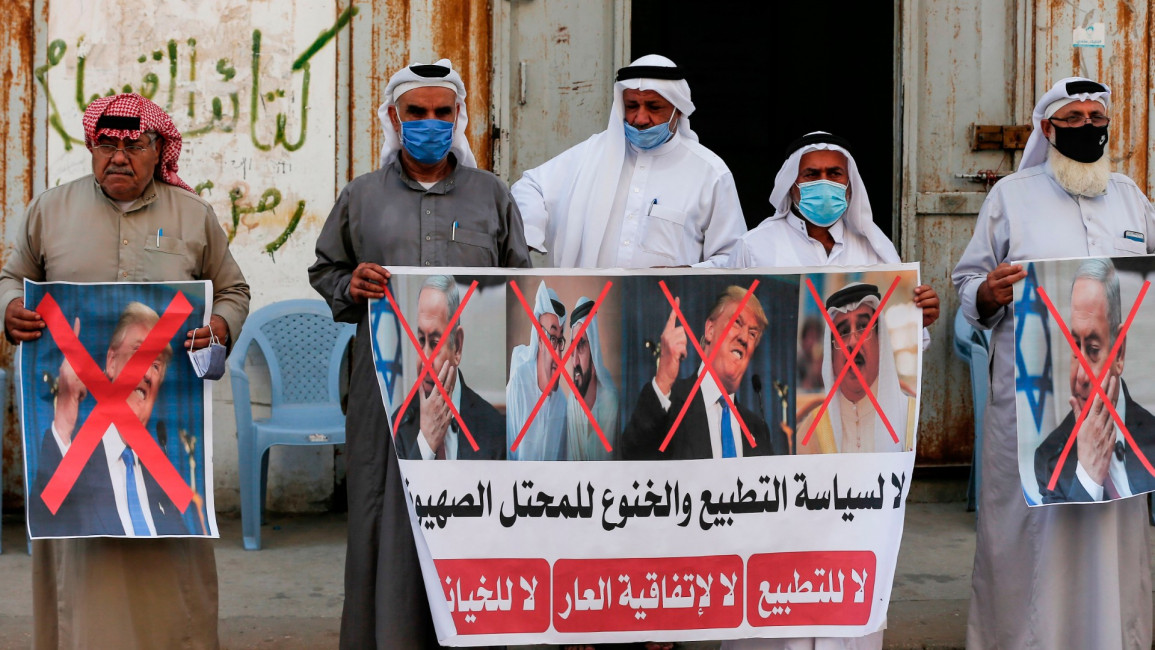The hashtags "Bahrainis against normalisation" and "normalisation is betrayal" were trending on Twitter after US President Donald Trump announced the deal late on Friday.
Bahrain, a Sunni-ruled kingdom with a large Shia population, shares with Israel a deep enmity towards Iran, and relies on the United States, which stations its Fifth Fleet on the tiny but srategic archipelago.
It has become the second Arab country in a month to normalise ties with Israel after the United Arab Emirates struck an accord that promises major gains on the security, trade and tourism fronts.
Bahrain's Foreign Minister Abdullatif bin Rashid Al-Zayani said the deal represented a historic step towards achieving peace in the Middle East, but the Palestinian Authority and Islamist movement Hamas both condemned it as "another stab in the back" by an Arab government.
Unlike the UAE, opposition to normalisation runs deep in Bahrain, which has a history of open politics even if it has been suppressed over the past decade.
Former MP Ali Alaswad wrote that it was "a black day in the history of Bahrain".
The kingdom - a small archipelago located between regional rivals Saudi Arabia and Iran - has been hit by waves of unrest since 2011, when security forces crushed Shia-led protests demanding reforms.
Hundreds of citizens have since been jailed and some stripped of their citizenship over what the government says is "terrorism" linked to Shia Iran. Protests are extremely rare and are met with harsh action by security forces.
Authorities dissolved the two main opposition groups, Shia group Al-Wefaq which was the largest in parliament until 2011, and the secular National Democratic Action Society, or Al-Waad, over allegations of links to "terrorists".
Both are denied representation in parliament, and Al-Wefaq leader Sheikh Ali Salman has been behind bars since 2014.
Al-Wefaq bitterly criticised the normalisation deal.
"The agreement between the despotic regime in Bahrain and the Zionist occupation government is a total betrayal of Islam and Arabism and a departure from the Islamic, Arab and national consensus", it said on Twitter.
Hussain Aldaihi, deputy secretary general of Al-Wefaq, wrote that "normalisation confirms what is certain, that these regimes pose a threat to their countries, peoples and the nation, by implementing disruptive agendas against the interests of our Arab and Islamic countries & peoples".
Other anti-normalisation groups, based both inside Bahrain and abroad, expressed their anger in statements sent to media, calling the deal "shameful".
Follow us on Facebook, Twitter and Instagram to stay connected



